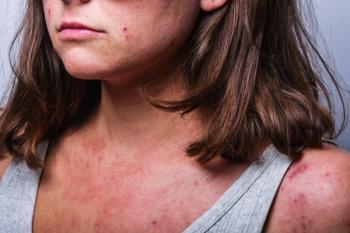
Specific groups with chronic conditions who could most benefit from RSV prophylaxis
A newly-published study identified specific groups of higher-risk children that could benefit most from monoclonal antibodies.
A new study published in JAMA Network Open found that specific groups of children with chronic medical conditions (CMCs) are at higher risk for respiratory syncytial virus (RSV) hospitalization during their first 2 RSV seasons, supporting expanded eligibility criteria for long-acting monoclonal antibody prophylaxis.
The retrospective, population-based, season-stratified cohort was conducted among children born between April 1, 2013 and March 31, 2023, in British Columbia, Canada. Participants were enrolled in the provincial medical service plan and followed up until the day before their third RSV season or April 1, 2024, whichever occurred first. The exposure element of the study was any CMC that was diagnosed in the first 2 years of life.
The primary outcome of the study was RSV lower respiratory tract infections-related hospitalization defined by ICD-10 codes.
"Recognizing the high disease burden caused by RSV, National Immunization Technical Advisory Groups (NITAGs) in North America and Europe recommended universal RSV immunization for infants entering their first RSV season instead of the restricted use of palivizumab only for children at high risk," wrote the study authors. "They have also recommended nirsevimab for children who remain at increased risk during a second RSV season and those who are at high risk in their first season, regardless of maternal RSV vaccination. Other NITAGs recommended nirsevimab only for children at high risk for up to 2 RSV seasons, including those who traditionally received palivizumab."
Study results
In all, the final cohort was made up of 431,937 children, of which 7.6% were born at <37 weeks' gestation and 51.4% were boys. The cohort was followed up for a median of 728 days, including 25,452 children (5.9) diagnosed with at least 1 of 1116 distinct CMCs.
Overall, 4567 children experienced a combined total of 4592 RSV hospitalizations, with data from the first and second RSV seasons. In the first RSV season, the hospitalization rate per 1000 person-years for children with CMCs was 15.9 (95% CI, 14.2-17.6), compared to children with out CMCs, who had a rate of 8.0 (95% CI, 7.7-8.3). In the second RSV season, those with CMCs had a rate of 7.8 (95% CI, 6.7-8.8). For those without CMCs, the rate of hospitalizations per 1000 person-years was 2.2 (95% CI, 2.1-2.3).
Investigators found that those with CMCs that impacted the respiratory, cardiovascular, gastrointestinal systems, had second-season RSV hospitalization rates that were at least a 2-fold increase compared to the rate among all children in the first season. Additionally, second-season rates among children with Down syndrome, or those who were born prematurely (<28 weeks' gestation) were 5-fold higher than all children in the first RSV season.
Specifically, second-season hospitalization rates exceeded first-season rates for all children, among study participants with primary lung disease, cardiac conduction disorders or dysrhythmias, epilepsy syndromes, brain malformations, surgical gastrointestinal conditions, esophageal atresia with or without trachea-esophageal fistula, or genetic disorders (including Down syndrome). Exceeded second-season rates were observed in participants requiring a gastrostomy or assisted ventilation by tracheostomy or those with CMCs who were born preterm.
"This population-based retrospective cohort study identified specific groups of higher-risk children with CMCs who could most benefit from prophylaxis with long-acting monoclonal antibodies in their first and second RSV seasons," the study authors concluded. "This study supports expanded eligibility criteria for long-acting monoclonal antibody prophylaxis."
Reference:
Viñeta Paramo M, Watts AW, Bone JN, et al. RSV Hospital Admissions During the First 2 Seasons Among Children With Chronic Medical Conditions. JAMA Netw Open. 2025;8(7):e2519410. doi:10.1001/jamanetworkopen.2025.19410
Newsletter
Access practical, evidence-based guidance to support better care for our youngest patients. Join our email list for the latest clinical updates.






